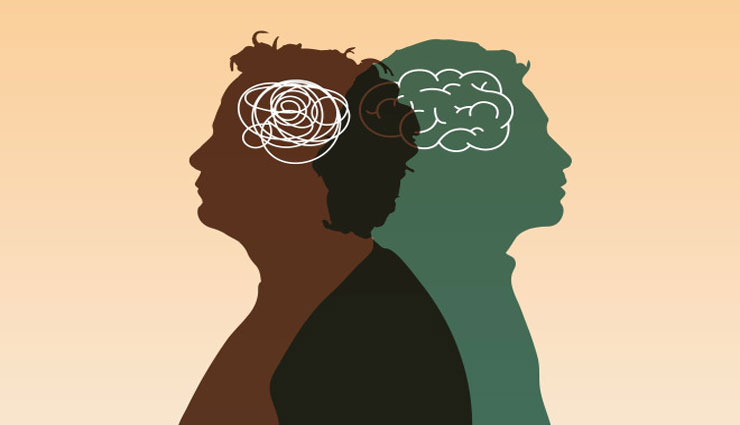Empathy is one of the most basic foundations of human relationships with others. A person without empathy cannot understand the feelings of others. Without understanding the feelings of others, it becomes impossible or at least challenging to communicate with others, but is any amount of empathy valuable and practical? Can empathy become a harmful factor? In this article, we want to talk about toxic empathy, its symptoms, and ways to deal with it.
What is empathy?
Before we get into the signs of toxic empathy, let’s review the definition of empathy. Empathy is the ability to understand the feelings and emotions of others. If you see someone in pain, do you feel uncomfortable and even pain? If your answer is yes, you are empathizing with that individual. Note that empathy is not imaginary; according to neuroscientists’ research, when faced with the suffering of others, parts related to pain and discomfort are activated in most people’s brains. That’s why sometimes we understand another’s pain so much that we can cry with him.
When does empathy become toxic?
Our empathy with others becomes toxic when we cannot free ourselves from the unpleasant feelings we have experienced. In other words, we get so immersed in empathy with others that we forget ourselves and our feelings.
Toxic empathy, also called excessive empathy syndrome, is a type of mental disorder. Because of this syndrome, a person cannot get rid of the emotions and feelings he found when empathizing with another. As a result, his everyday life is disturbed. This disorder contrasts with another disorder in which the person cannot empathize.
Although empathy is one of the basic abilities of our emotional intelligence, its excess may make us suffer from depression, anxiety, and other mental disorders.
Ten signs of toxic empathy

1. We empathize with others to the point of helplessness
A person with toxic empathy becomes so involved in the feelings of others that they become helpless. Do you always feel the weight of other people’s feelings on your shoulders? Do you always put the needs of others before your own? If the answer to these questions is yes, you have toxic empathy.
2. We are unable to restrict
Setting boundaries is part of any healthy relationship. Demarcation is a barrier against mental injuries. If we have toxic empathy, we cannot set boundaries properly. As a result, we may not be able to take care of the mental health of others.
3. We justify misbehavior
The skill of empathy helps us to understand others when they sometimes misbehave. For example, if our boss gets angry sometimes, we can attribute this to work pressure. But if he constantly treats us aggressively, then there is a problem. Now, if we continue to justify the wrong behavior of others, we have toxic empathy. Sometimes, the poisonous empath may feel victimized by the abuse of others.
4. We become unable to express our feelings
When we are constantly involved in the feelings of others and empathizing with them, we gradually forget our feelings. Therefore, we cannot do so if asked to express our feelings. We are so caught up in the suffering of others that we forget our own needs and problems.
5. We are constantly worried about the thoughts and behavior of others
A toxic empath continuously analyzes the speech and behavior of others. He looks for clues to understand other people’s feelings. Although being alert to the actions of others is part of a healthy relationship, obsessive engagement with them is a sign of toxic empathy. We should sometimes be indifferent to the words and behavior of others.
6. It is hard for us to say no
Another sign of toxic empathy is the inability to say no because we are afraid of upsetting and alienating others. Although it is nice to help others, we cannot always meet the needs and requests of others.
7. We are constantly looking for confirmation
A toxic empath feels useful when another person approves of his behavior. For this reason, people who have poisonous empathy are exposed to abuse more than others. Although it is nice to have the approval of others, relating to others should not become our goal.
8. We are afraid of confrontation with others
One of the signs of toxic empathy is our inability to confront and argue with others. We are so scared to upset others by expressing our opinions. For this reason, we constantly censor ourselves and avoid expressing our true selves. This abstinence may hurt our mental health and personality.
9. We experience physical symptoms of toxic empathy
Excessive empathy also affects our bodies. For example, if we also become stressed by seeing another person’s stress, we will suffer from the physical consequences of stress, such as increased blood pressure and body inflammation. Toxic empathy may also lead to inflammation and increase the amount of hormones such as cortisol in the body.
10. We become unable to do daily tasks
The excessive empathy that falls on our heads does not allow us to reach our daily tasks. Toxic empathy makes us unable to focus on daily tasks, and our work performance decreases. We also forget to take care of ourselves.
How do we free ourselves from toxic empathy?

If you are experiencing these symptoms, take the following steps before toxic empathy does more damage. Even if you do not have poisonous empathy, it is better to read the following methods and keep them in mind.
1. Seek healthy relationships
Empathy is one of the pillars of a healthy relationship as long as it is mutual. If your partner or friend does not pay attention to your needs and desires, it is better to reconsider your relationship with him.
A healthy relationship has clear boundaries, and each respects the other’s boundaries. Part of this boundary-setting is the ability to say no to the excessive demands of another without dealing with guilt. If you lack this ability in some of your relationships, you must enforce stricter boundaries to avoid toxic empathy.
2. Name the feelings
Sometimes, empathy causes our emotions to get mixed up, and we feel the signs, but we can’t figure out what happened. Naming your feelings makes it easier for you to gain self-awareness. With self-awareness, you can control your emotions better.
3. Help visualize emotions
Imagine yourself surrounded by a wall of glass. This wall protects you from the unpleasant feelings of others. You see them, but those feelings don’t penetrate you. Visualization also helps you deal with rumors. Also, use this method to release feelings you have carried for a long time. Imagine these feelings are like a leaf falling into the water stream with the wind and going away from you.
4. Plan your day
Have a daily plan to spend your time. You will be lost when you don’t know what to do with your time. In this case, you will likely be busy surfing the web or aimlessly in the virtual space, and you will lose your energy very soon by following unfortunate news and negative things.
If you must deal with an upsetting and energizing topic or event, set aside time for rest and self-care between or after.
5. Practice mindfulness
Using mindfulness techniques is a way to deal with toxic empathy. One of these techniques is paying attention to breathing. Please pay attention to your breathing and gradually deepen it. Deep and counted breathing calms the nervous system and gives order to thoughts.
6. Spend time alone
Sometimes, you must escape the hustle and bustle of the world and its people. Identify activities you like to do alone and set aside time each week for them. For example, if you have pets, you can play with them. Walking, taking care of flowers in the garden, and making crafts are among the things that restore your energy.
7. Talk to someone you trust and empathize with
Many people will come to you for their problems if you are known for empathy. In most cases, you are the listener and get many emotions. Do not forget yourself. It would be best if you also had someone to empathize with. Therefore, find someone you can rely on and share your feelings with.
Writing down your feelings may be healing if no one is around you.
8. Cultivate conscious empathy
Compassion means empathy with the desire to do something positive. If you see a thirsty dog in the desert, you feel sad, and this is empathy. But your compassion has led to something positive when you search for water to save him.
To find such a spirit, you must turn blind empathy into conscious empathy. When you consciously empathize, you look at the problem from the outside and try to use practical and logical problem-solving methods. Many humanitarian movements are rooted in conscious empathy.
your experience
Have you ever experienced toxic empathy? What consequences did it create for you and your relationships? How did you manage to pull it off? Write us about your experiences.



